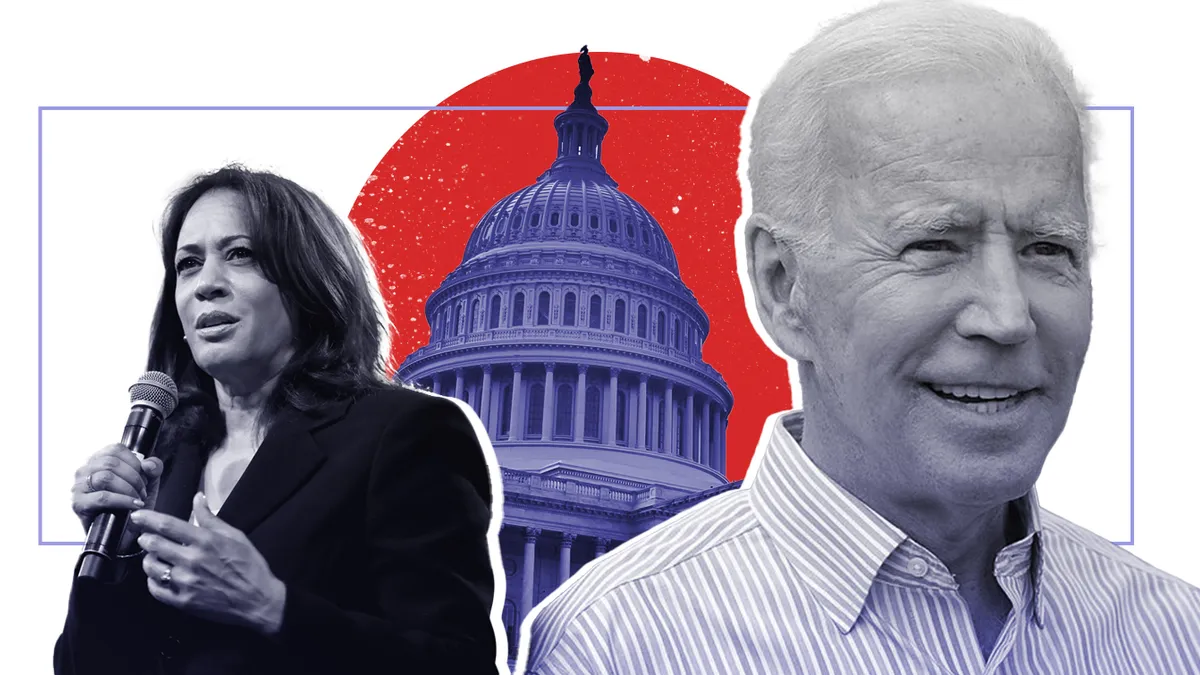Dive Brief:
- President-elect Joe Biden will call on Congress to put back into place paid-leave provisions of the Families First Coronavirus Response Act (FFCRA) and strengthen the law by eliminating exemptions for employers with more than 500 or less than 50 employees, according to a statement released this week.
- Biden also aims to provide more than 14 weeks of paid sick and family and medical leave to parents with additional caregiving responsibilities facing a school or care center closure; people who have or are caring for someone with COVID-19; people quarantining due to possible exposure; or those who need to take time to receive a vaccine. Emergency paid leave also would be expanded to include federal workers, per the statement.
- Employers with fewer than 500 employees would be eligible for a refundable tax credit for 100% of the cost of providing emergency paid leave, and Biden would ask that emergency leave measures be extended to Sept. 30, 2021.
Dive Insight:
The proposal is one of several policy goals in Biden's plan that aims to provide relief to U.S. workers, but it is unclear whether it will gather enough support in Congress. Both houses passed, and President Donald Trump signed, a relief package last month to allow employers to claim a tax credit for providing FFCRA leave on a voluntary basis through March 31, 2021, but the bill required a series of compromises in order to pass.
An extension of the FFCRA may complement other areas of focus for the incoming administration. Biden's team has already indicated the president-elect will pursue the enactment and enforcement of emergency workplace safety standards through the Occupational Health and Safety Administration.
On the legislative front, Biden said he supports raising the federal minimum wage to $15 an hour, ending the subminimum wage for workers with disabilities and ending the federal tipped minimum wage. Paid leave in particular may be gaining some traction in Congress after years of deliberation on the subject.
Biden also has signaled support for unions with the impending nomination of Boston Mayor and former union president Marty Walsh for Secretary of Labor. Management-side attorneys who previously spoke to HR Dive indicated that the president-elect may also push to reevaluate or rescind various regulatory decisions by the Trump administration, including its recent decision to issue an update to the Fair Labor Standards Act's white-collar overtime exemption.
Notably, Biden's document also stated that the president-elect will "call on CEOs and other business leaders" to provide "generous back hazard pay" to essential workers. Though some companies offered hazard pay to essential workers during the pandemic, most of those surveyed in an April 2020 survey by WorldatWork said they did not plan to issue such incentives or bonuses.
Generally, employment law experts say they expect the Biden administration to shift to a worker-friendly agenda on both the legislative and regulatory fronts. This may include enforcement of workplace safety standards and additional clarity on guidelines around items like vaccine standards, sources previously told HR Dive.














